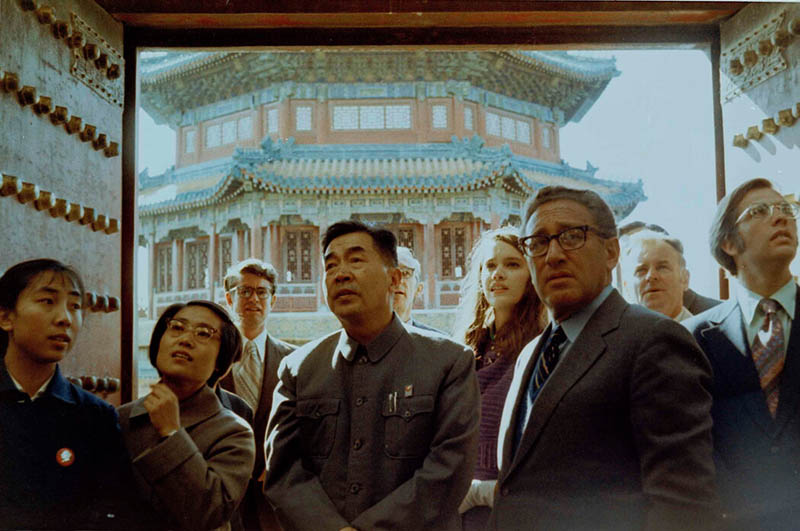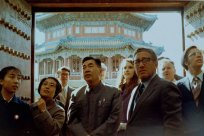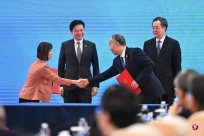
1972年寒冬,在中国的一个贫困乡村,A teacher asked in the classroom: "U.S. President Nixon and his consultant Dr. Kissinger Kissinger is coming to China. What should we do?"
I was eight years old at the time, and I was a good student. I just finished my homework -I will have the ubiquitous political slogan "Understand the United States! Expost Su Xiu! Long live Mao!" Copy 50 times.
So I gave the answer without thinking: "Grab them up because they are our enemies."
After a few years, I realized that I was wrong.Under the planning of Henry Kissinger, the United States' initiative to contact the complex political changes in China for decades, bringing an era of reform and opening up, eventually causing 800 million people to get rid of poverty and let more people open themselves.The horizons and thoughts.
All this has a huge impact on me and even thousands of young students.Five years after Kissinger visited China, China has reopened universities that have actually closed for ten years.With hard work and luck, I was able to enter university to study, and later went to the United States to study for a PhD. I went to the school where Mr. Kissinger received his doctorate.This is an incredible change for a student who is still copying the party's propaganda slogan not long ago.What did I learn that day?It's simple, don't be blinded by political slogans.
Among today's politicians or ideological leaders, I can't think of who can have such a significant and positive impact on a stranger like Mr. Kissinger.Last week, he died with a centenarium. The response caused by the United States was two extremes. However, in the commonly harsh Chinese Internet world, most people's views have a warmth.Ordinary people wrote their memories with grateful brushes and got a lot of forwarding.Although a fierce discussion was conducted around his merits, I believe that one thing is beyond doubt: Mr. Kissinger's view of China is correct.
Forty years after asking Mr. Kissinger, I found that I was standing on the same stage with him, facing 2,700 audiences who came to watch the Mosque debate on the spot.Er Ferguson and Fariid Zacalia.The title of the debate is: "As long as you are determined, the 21st century belongs to China."I really want to be in the same team as him.This is not only because I feel guilty about the suggestion that put him into the Chinese prison, but also because I do not agree with the position assigned to me, I never think that China will have the world.
Make my debate teammate Ferguson's disappointment -but I am very satisfied with me in private -we lost.Mr. Kissinger's authority and skill on this proposition, coupled with the clear statement of Zacalia, obviously made them occupy great advantages.This debate made most viewers inclined to believe that the 21st century did not belong to China.
Mr. Kissinger's strategy for China was formed in his lifelong study of world history and politics.He has a deep understanding of the interaction between the great powers, and has an inherent understanding of the way China treats the world.Behind this is his absolute loyalty to the interests of the United States.
We can get three important lessons from Mr. Kissinger's strategy to China.First, China does not pose a major threat to the United States.China does not seem to replace the United States today and follow the global ambitions, institutional strength, historical tradition or ideological clarity required for its behavior.This is also determined by its geopolitical situation.At the debate in Toronto, Mr. Kissinger asked: Look at the world map.There are 14 countries bordering China.How many of them can be regarded as a loyal friend of China?After dealing with these neighboring countries, how much energy can China remain to manage global affairs?In contrast, there are only two neighbors in the United States.
Secondly, no one can change China from the outside.Its volume and history determine that this is impossible.You can cooperate with China to help its leaders start the reform of the country, but you can never change it from the outside.Mr. Kissinger repeatedly demonstrated a little more — including in his book theory of China -China has a meticulous political system. This system has existed for thousands of years and has continued to this day.Unless it is through internal power, it is impossible to promote China's changes, and it will only be counterproductive.In fact, as early as the end of the 1960s, Chairman Mao had begun to consider alliance with the United States in order to resist the increasing ambitions of the Soviet Union.If it was not Mao's determination to cooperate with the United States, Mr. Kissinger's historic China trip in 1971 would not be possible.
Third, the United States must use China as an equal partner to deal with global challenges including non -proliferation, climate change, proper governance of artificial intelligence, and sustainable development.This is especially important today: China is now the world's largest solar board and wind turbine producer. It is a leading position in artificial intelligence research and is also the only country with its own manned space station.
In recent years, many US political leaders have begun to oppose Mr. Kissinger's strategy, especially the first one.The US foreign policy has also adopted a more and more tough attitude towards China.This is very unfortunate.Yes, China is more powerful and has achieved more international influence.But Beijing did not participate in any international military conflict.As far as I know, China's Central Party School has not trained any foreign officials and has no plans to change this situation.Constantine China is an increasingly big threat, at least the use of unnecessary use of US political energy.
Mr. Kissinger is a refugee under the Nazi rule and has unswerving loyalty to the United States.His strategy is from the interests of the United States: the United States wins in the Cold War, and the economic prosperity of the years is that the United States is enjoying a peaceful dividend.Of course, China is also rising rapidly, but the development of China is not the same as the loss of the United States.Don't blame the internal problems facing the United States today to the Chinese strategy of Mr. Kissinger.It should be focused on solving the problem itself.
Confucius said, "Winning and knowing new." Looking back on his view of Chinese, when Mr. Kissinger died, it should be a good practice for today's American politicians.
Mr. Kissinger's perception of China is correct, so so far.



